School of Public Health
Public Health Hackathon

This is an innovative initiative aimed to assist youth to come up with out-of-box solutions to address public health challenges of the 21st century. This platform brings together youth's ideas on how today's pressing public health problems can be addressed across diverse local and global settings.
We bring together high schools and currently enrolled public health students across different countries to solving public health challenges by connecting youth locally, nationally and globally.
Hackathon Participants Around the World
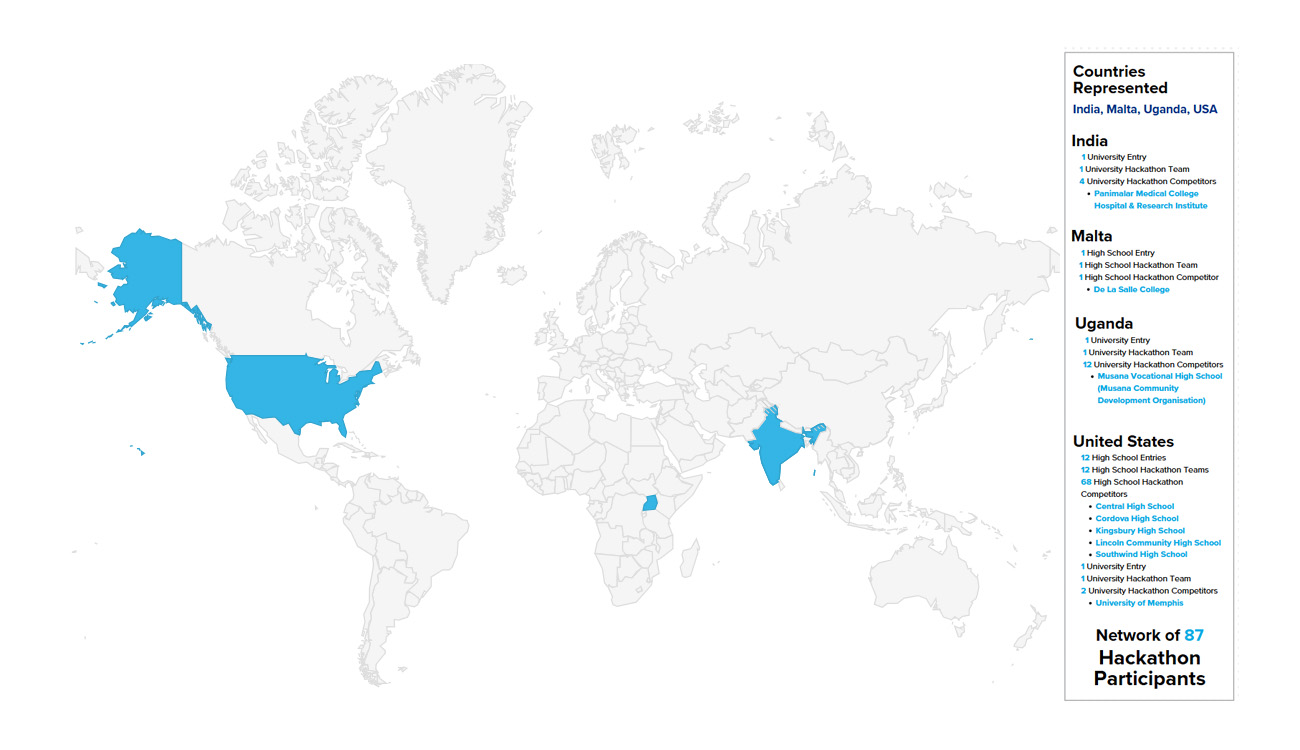
Learn More About the Hackathon
Are you ready to turn ideas into reality? The hackathon teaches you the skills to think about solving public health problems, not just identifying them. Through workshops you can get expert feedback on your innovative and sustainable solutions--that you can take back to your community to spark improvement of good health and well-being. Become a champion of public health change!
Frequently Asked Questions
For more information click a drop-down arrow below
Abstract Details (Limit: 500 words)
- Problem statement (10 points) highlights the topic and the public health problem it
addresses.
- Background
- Objective
- Significance and Relevance
- Solution/Innovation proposed (10 points)
- Approach - describe how you plan to address this problem (10 points)
- Impact: How would you assess? (10 Points)
- Sustainability: How will you propose the sustainability of the solution? (10 Points)
Pitch
To participate, submit a 1-3 minute YouTube video pitch by April 1, 11:59 PM CST, following these guidelines:
- Upload your recorded video to YouTube as an unlisted link.
- Address key evaluation criteria
- Submit your YouTube video link through the pitch submission form emailed to participants
Judging Criteria
The best public health ideas will be selected by the esteemed jury representing a multidisciplinary team based on the following criteria:
- Creative
- Research-oriented
- Entrepreneurial
- Accessible
- Transformative
- Effective
- The hackathon competition spans 9 months.
Awards and Recognition
Projects that have advanced to the pitching round are invited to join a hybrid-celebration to recognize all the innovative ideas our students have. Participants can expect to recieve:
- Certificate of Participation
- Opportunity to be featured on official SPH outlets such as our website, social media and newsletter.
Why should I participate in the hackathon?
- Learn to turn ideas into reality! The hackathon teaches you the skills to think about solving public health problems, not just identifying them. Through workshops you can get expert feedback on your innovative and sustainable solutions--that you can take back to your community to spark improvement of good health and well-being. Become a champion of public health change!
Who can participate?
- High school students from grades 9-12 and undergraduate university students.
What is a public health issue?
- Public Health issues include diseases and conditions that impact entire populations.
- A few examples include: how to tackle obesity, ways to enhance physical activity, mental health issues among youth, environmental and climate health concerns, risky behaviors (such as drug, alcohol, and substance abuse), access to healthy food, social media misinformation, and ways to address violence and bullying.
Hackathon Advisory Board

Santi Indra Astuti
Faculty of Communication Science, Journalism Dept., Islamic University of Bandung (UNISBA), Indonesia
Santi Indra Astuti is a lecturer on the Faculty of Communication Science, Islamic University of Bandung (UNISBA), Indonesia and has been teaching media literacy and research methodology since 2005. Since then, everything about media/information/digital literacy became her passion. In 2016, she joined MAFINDO (Masyarakat Anti Fitnah Indonesia), a community-based organization based on fact-checking and reducing information disorder among society. In 2017, she co-founded JAPELIDI (Indonesia Digital Network of Digital Literacy Activists) that today has sheltered 230 members, 80% of which are lecturers from 102 universities. Currently, she is managing TULAR NALAR, a digital literacy project aimed to build critical thinking skills in education communities (2020), the elderly (2022), and Youth (2023) to face the challenge of toxic information online/offline and activate them as agents of digital literacy. The project, powered by Google.org, has been escalated to reach 1.6 million people in 38 provinces of Indonesia. Working with multiple stakeholders, the program also devises various collaborations to reach the most undeserved communities that are still overlooked in the country, such as those with disabilities, urban poor communities, indigenous people, rural villages, and non-digital communities. Santi's involvement in public health issues and health communication risk was noticeable during the early phase of pandemic. She was a part of an expert team that led risk communication for Covid-19 task forces in regional and national committees. After the pandemic, she facilitated training for health cadres and community leaders on several topics ranging from fact-checking training, digital literacy awareness, and effective communication to enhance community engagement. She also led some projects aimed to design and produce videos, games, and other communication tools to support health campaigns. In 2020, Santi was responsible for carrying out the Social Inoculation 2.0 Research Project, which aimed to develop an intervention model for reducing COVID-19 misinformation. The 2 years of research involved surveys in 6 cities of Indonesia, intervention focus group discussions in 3 cities along with piloting classes to test the intervention model. The intervention model “Vaccine Communication” has now been developed into a set of training and campaigns in several cities of Indonesia targeting the health community, healthcare workers, and particularly, health cadres.
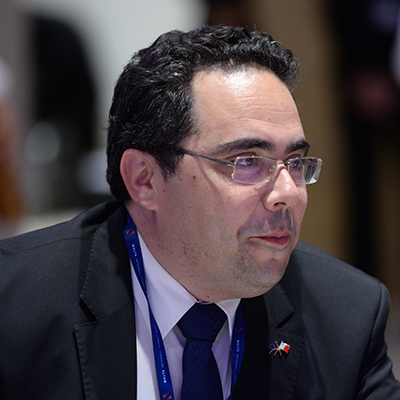
Dr. Neville Calleja
A Full Professor and Head of Department for Public Health, Faculty of Medicine & Surgery of the University of Malta, Malta
Neville Calleja is a Full Professor and Head of the Department for Public Health within the Faculty of Medicine & Surgery of the University of Malta, in Europe. Since 2007, he has also served as the Director for Health Information and Statistics within the Ministry of Health in Malta, serving as Acting Chief Medical Officer during 2014. He is very active in the field of Health Information for both the EU and WHO (Europe), conducting health information system assessments in the region, and is part of the team involved in the development and revision of the WHO (Europe) tool for this purpose. He has also been recently involved in the assessment of COVID-19 specific health information systems in several countries in Europe and the preparedness of EU countries for the upcoming European Health Data Space initiative. During the COVID-19 pandemic, apart from providing epidemiological and public health policy support as part of the Senior COVID-19 Advisory Group to the Ministry for Health in Malta and representing Malta on several COVID emergency fora in the EU, he assisted the WHO in Geneva in shaping its infodemic management research agenda and competency framework, and has contributed to several training schools in infodemic management covering over 1400 infodemic managers globally. The AD Scientific Index 2023 ranked Prof. Neville Calleja as one of the top 10 scientists in Malta.

Rafaela Rosário
Assistant professor at the University of Minho, School of Nursing, Campus of Gualtar, Portugal
Rafaela Rosário is an assistant professor at the University of Minho and serves as the director of the Research Center in Nursing at the same institution. With a robust background in both randomized and observational studies, her research group has made significant contributions in the field of obesity prevention and health promotion. At present, Rafaela Rosário is the PI of the “BeE-school” project, focusing on enhancing lifestyles and socio-emotional skills in children aged 6-10. She also spearheads the Portuguese “GLOBHL – Global Health Literacy” network, spanning more than 32 countries. Moreover, Rafaela Rosário's research delves into various determinants of health, with a specific emphasis on health literacy and the infosphere.Notably, she was a participant in the inaugural cohort of the WHO Infodemic Management Training, reflecting her commitment to exploring the intersection of health literacy and infodemic management. Benefiting from a wide-reaching research network that includes key entities such as Schools for Health in Europe and the European Public Health Association, she has fostered numerous successful collaborations on both national and international scales. Rafaela Rosário's unwavering dedication is evident in her belief that effective infodemic management, health literacy, and resilience to misinformation are critical for health professionals. She is the coordinator of the pioneering training course on community intervention and infodemic management designed for professionals from the field of health and social sciences.

Dr. Becky White
Adjunct Research Fellow at Curtin University, a director at Reach Health Promotion Innovations, a Digital Health Advisor to the Australian Digital Health Agency, Australia
Dr. Becky White is a researcher and consultant with over 15 years’ experience in health promotion and digital health. She is an Adjunct Research Fellow at Curtin University in Australia, a director at Reach Health Promotion Innovations, has worked as a consultant in the Infodemic Management team at WHO and is a Digital Health Advisor to the Australian Digital Health Agency. Becky has worked on projects performing social listening in digital spaces and producing and teaching infodemic insights monitoring and analysis, both as part of the WHO COVID-19 response and in a research capacity, looking at information trends over the course of the pandemic. She has worked for many years on how digital health technologies can be best utilised for health promotion and health behavior change in populations. Becky’s research interests are digital and health literacy, infodemics, health promotion and digital health. She has a PhD in Public Health and is an IUHPE accredited Health Promotion Practitioner.

Cherstyn Hurley
Immunisation publications manager and infodemiologist, Immunisation and Vaccine Preventable Diseases Division, UK Health Security Agency, United Kingdom
Cherstyn Hurley trained at Chelsea School of Art & Design specialising in design in the public realm. She is a lecturer and course leader in Further and Higher Education on critical thinking for design and multimedia. She is also the immunisation publications manager for the Immunisation and Vaccine Preventable Diseases Division of the UK Health Security Agency. She was the publications manager for Public Health England for 8 years. Cherstyn works in digital, print, video and offline solutions to co-create public health training, advice and guidance. She is passionate about co-creation with users and stakeholder engagement. She is a member of the WHO Vaccine Safety Network advisory committee. She works to co-produce Risk Communication and Community Engagement (RCCE) resources to support the UK national immunisation programmes and COVID-19 vaccination programme. She was part of the first Infodemic Management training cohort in 2020. She is an infodemic manager and infodemiologist with a specialist interest in public health communications which enable child, young people and adult health literacy and reach underserved communities. She has a particular interest in mis and dis information and how they form barriers to the uptake of public health measures and vaccination.
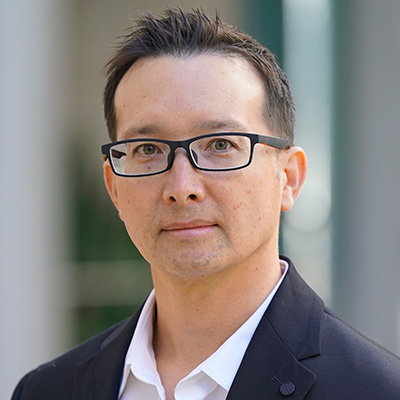
Dr. Timothy Mackey
Director, Global Health Policy and Data Institute, UC San Diego, United States
Tim Ken Mackey is a Professor in the Global Health Program at UC San Diego in the Department of Anthropology, the Director of the Global Health Policy and Data Institute, and the Editor-in-Chief of JMIR Infodemiology. He is also the CEO and co-founder of the data science and research services company S-3 Research. He holds a BA in Political Science-International Relations, a Master's degree in Health Policy & Law and earned his PhD in Global Public Health from the joint doctoral program at UC San Diego - San Diego State University. Prof. Mackey’s work has been featured in high-impact journals such as Science, Cell, JAMA, Nature Biotechnology, the Lancet, Nature Reviews Clinical Oncology, and Clinical Microbiology Reviews. His research and expertise has also been featured in major news outlets such as The New York Times, CNN, NPR, and the Wall Street Journal. His work focuses on an array of multidisciplinary topics in domestic and global public health, with a specific focus on health technology and innovation, machine learning, infodemiology, and global health policy. He also has extensive professional experience including over 10 years' experience in the private sector and acting as a consultant for the World Health Organization, the US Department of State and others.
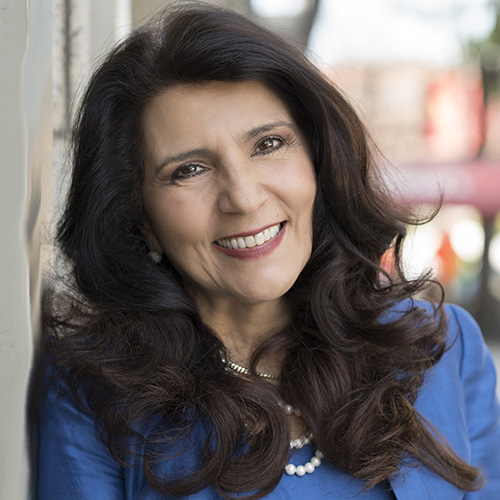
Dr. Laura Magaña
President and CEO of the Association of Schools and Programs of Public Health (ASPPH), Founding President of the Global Network for Academic Public Health (GNAPH), United States
Dr. Laura Magaña is President and CEO of the Association of Schools and Programs of Public Health (ASPPH). She is also the founding President of the Global Network for Academic Public Health (GNAPH), an alliance of seven regional associations representing schools and programs of public health worldwide. Under her leadership, the ASPPH has continued to advance academic public health by mobilizing the collective power of its members to drive excellence and innovation in education, research, and practice. During her tenure, the ASPPH has strengthened academic public health research through the Data Center, launched the academic public health leadership institute, and enhanced the voice of academic public health through advocacy. Dr. Magaña expanded the association’s global reach and is leading five strategic initiatives to address critical issues in public health as part of the ASPPH’s 2030 Vision: Dismantling Racism in Academic Public Health, Climate Change and Health, Framing the Future 2030, Gun Violence Prevention and the ASPPH Workforce Development Center.

Dr. Catherine Bertrand-Ferrandis
Director Strategic Communication, France
A veterinarian by training, Catherine has worked for over fifteen years in public health communication, with a strong "One Health" focus. She specializes in global health communication, risk communication, infodemic management, and the training of international health professionals. She led the communication department of the World Organisation for Animal Health from 2013 to 2020 and was involved in the development of several tripartite and quadripartite communication initiatives on antimicrobial resistance. Founder of her own consultancy in 2020, she regularly supports WHO teams in projects related to her areas of expertise. She also advises various public and private health sector leaders on their strategic communications.

Renata Mares
Renata E. Mares MIPH, BSN, BAKin, WHO IM, Founder & CEO, Adaptation Consultant, Public Health, Canada
Renata (she/her) is an adaptation and public health consultant with 15+ years of infectious disease expertise as a public health nurse and researcher across Canada and the southern hemisphere. She is a WHO certified infodemic manager and has supported their work in capacity building efforts among healthcare providers. Renata is a sessional lecturer in Canada, covering topics such as: public, global and indigenous health policy and practice. She is part of the research team at Université de Sherbrooke working in collaboration with the JITSUVAX project. She is the founder of Adaptable Folks Inc.
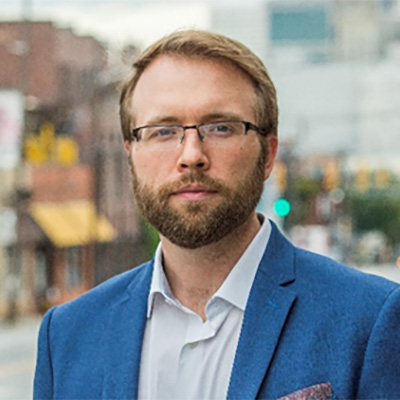
Dr. Chris Voegeli
Behavioral Scientist, Acting Inaccurate Health Information Mitigation Team Lead, Division for Communication Science and Services, Office of Communications, CDC, United States
Dr. Chris Voegeli is the acting Inaccurate Health Information Lead in the Office of Director’s Internal Office of Communication at the US Centers for Disease Control and Prevention. In this role, he is tasked with developing, implementing, and evaluating the CDC’s strategic plan to address inaccurate health information. Before taking this role, Chris was the Acting Vaccine Confidence and Demand lead in the Immunization Services Division of the National Center for Immunization and Respiratory Diseases, where he coordinated the CDC’s domestic portfolio of work to build the public’s confidence and demand for all vaccines. Prior to that, Chris led the Insights Unit, which worked to monitor and mitigate the spread of COVID-19 misinformation and produced the CDC's State of Vaccine Confidence Report.
